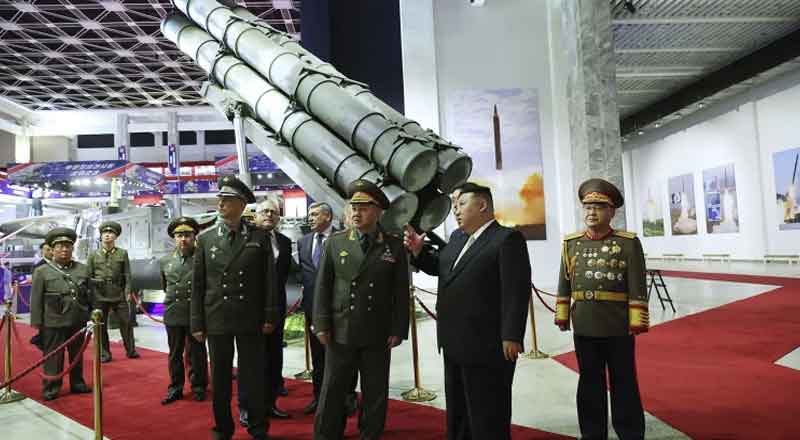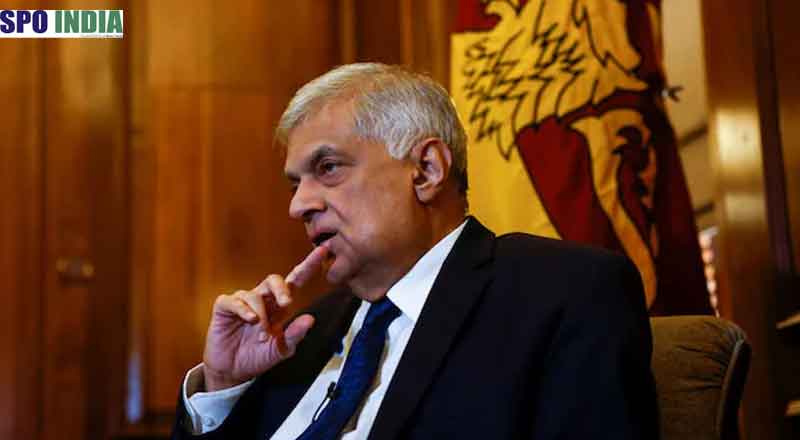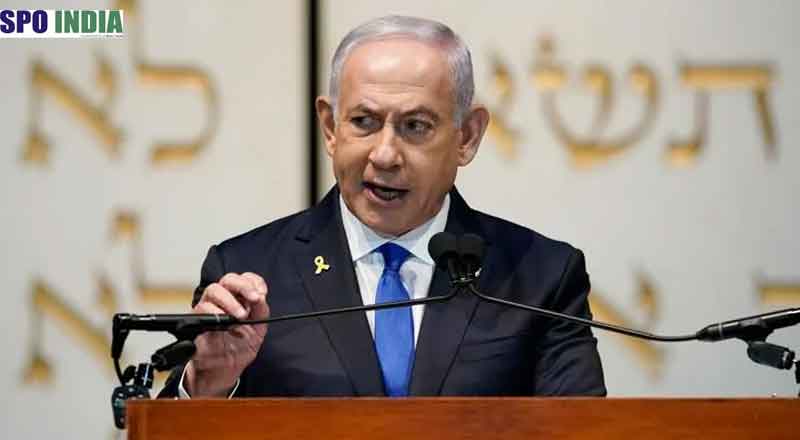- North Korea marks the 70th year of ‘Victory Day
- Russia, China’s first prominent visitors since the COVID pandemic
- Leader Kim shows Russia’s defence chief missiles at an arms expo
- North backs Russia’s ‘battle for justice
- Mr. Putin is reaching out to other countries for help and support in fighting his war in Ukraine- US
- North Korea and Russia deny they have conducted arms transactions.
Russia’s defence minister accompanied North Korean leader Kim Jong Un to a defence exhibition that featured the North’s banned ballistic missiles as the neighbours pledged to boost ties, North Korean state media reported.
The Russian minister, Sergei Shoigu, and a Chinese delegation led by a Communist Party politburo member arrived in North Korea this week for the 70th anniversary of the end of the Korean War celebrated in North Korea as “Victory Day”.
The nuclear-capable missiles were banned under U.N. Security Council resolutions adopted with Russian and Chinese support but this week they provided a striking backdrop for a show of solidarity by three countries united by their rivalry with the U.S. and a revival of what some analysts see as their Cold War-era coalition.
Shoigu is making the first visit by a Russian defence minister to North Korea since the fall of the Soviet Union. For North Korea, the arrival of the Russian and Chinese delegations marks its first major opening up to the world since the COVID-19 pandemic.
Kim thanked Putin for sending the military delegation led by Shoigu, saying the visit had deepened the “strategic and traditional” relations between North Korea and Russia.
KCNA did not refer to the war in Ukraine but North Korea’s defence minister, Kang Sun Nam, was reported as saying North Korea fully supported Russia’s “battle for justice” and to protect its sovereignty.
State media photographs showed Kim and his guests at a display of some of the North’s ballistic missiles in multi-axle transporter launchers. Another image showed what analysts said appeared to be a new drone. One analyst said Shoigu’s inspection of the North Korean missiles visit suggested Russian acceptance of North Korea’s nuclear programme.
Kim also met Chinese Communist Party Politburo member Li Hongzhong for talks and was handed a letter from Chinese President Xi Jinping, North Korean media reported. The visit by Li’s delegation showed Xi’s commitment to “attach great importance to the DPRK-China friendship,” Kim was quoted as saying by the North’s KCNA state news agency, referring to the North the initial of its official name, the Democratic People’s Republic of Korea.
State media photographs showed Kim at a large flashy performance flanked by Shoigu and Li, with a backdrop that included a slogan used by the Chinese army during the Korean War vowing to “resist U.S. aggressors.”
The Russian visit raises the prospect of more open support for North Korea, especially with Russia isolated by the West over is invasion of Ukraine, analysts said.
Shoigu’s appearance at the military expo exhibiting the ICBMs is a “very ambivalent gesture” given that Russia stays formally committed to the UNSC resolutions banning North Korea’s nuclear and missile programmes, he said.
South Korea’s foreign ministry noted it had been Russia’s official position to oppose North Korea’s nuclear programme and said it hoped the visit by Shoigu’s delegation would help the North return to dialogue.
White House national security spokesman John Kirby said Russia’s overtures to North Korea come as the Kremlin struggles to procure arms. “It’s been no secret … Mr. Putin is reaching out to other countries for help and support in fighting his war in Ukraine. And that includes, we know, some outreach to the DPRK,” he said.
North Korea has backed the Kremlin over its war with Ukraine and has shipped weapons including infantry rockets and missiles in support of Russia’s war, the White House has said.
North Korea and Russia deny they have conducted arms transactions.
(With inputs from agencies)





